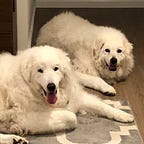Looking Back, Looking Forward, and Living Now
(Mike DePung — Post 330)
While this is the first day of a new year, I have been thinking about an old piece of literature, one that has a few pertinent thoughts to this day.
Robert Burns, a Scottish poet who lived in the eighteenth century, wrote the classic New Year song “Auld Lang Syne.” Actually, he claims he recorded it on paper because he had heard it for years. At least he was honest!
He also wrote a poem that slightly pre-dates the Romantic period of British literature; however, it contains thematic ideas that reflect Romantic themes, especially that of the value of Nature which instructs us about our relationship to the Universe. The poem, “To a Mouse,” speaks of a farmer who while plowing a field slices through a little mouse’s burrow. The mouse runs away, its home being destroyed, but the farmer thinks about the lesson in the experience.
Burns through his narrator recognizes that Man has the ability to break the delicate relationship with the rest of the natural world: “I’m truly sorry Man’s dominion / Has broken Nature’s social union, / An’ justifies that ill opinion, / Which makes thee startle, / At me, thy poor, earth-born companion, / An’ fellow-mortal.” This gives the context that the farmer understands the relationship between the mouse and himself.
The last two verses, after surveying the destruction and ascribing intents and thoughts to the mouse, the farmer shares the lesson: both mice and men make plans, do their work, and it can be destroyed in a split second, producing grief over lost, wasted effort.
The farmer, though, looks more deeply at the lesson the mouse shows him: “Still thou art blest compared wi’ me! / The present only toucheth thee: / But Och! I backward cast my e’e, / On prospects drear! / An’ forward tho’ I canna see, / I guess an fear!” What are the implications of humans evaluating the past in a negative way or anticipating the future and worrying over it, even though there is no way to know?
The obvious implication, as the farmer sees it, is that the mouse as a creature with a direct, intimate link with nature lives in the moment. It doesn’t look back and think, “What a stupid waste of time building that burrow. Why bother? I need to get some help and build a really expensive house that an idiot farmer can’t plow through. Or maybe I should just give up.” Nope, mice don’t do that.
They know what they want to do, engage in it, are satisfied with their labor, and just keep doing whatever they sense they need to from moment to moment. Living in the present is a fairly valid lesson.
But we are humans and we can and do think, so how do we adapt, especially at a time of the year like this when we do exactly what the farmer observed — look back and look forward? Our link to Nature, the Universe, and the Spirit is our Heart within us, part of our total being. We must establish our relationship with our core Self, come to know that Self, step into being who we came here as.
When we don’t, Ego — which acts to preserve physical life in the midst of society holds us in paralysis in terms of living a full, meaningful, significant life — serves as our mind-soul-body complex filter and can deflate us or inflate us or just keep us in a numb, plodding, resigned existence. Whatever the effects and manifestation of Ego, we can be left to view life like the farmer: “The best laid schemes o’ Mice an’ Men / Gang aft agley, / An’ lea’e us nought but grief an’ pain, / For promis’d joy!” The best one can expect from life is grief and pain resulting from careful planning that gets destroyed by fate.
Anyone thinking like that is thinking through Ego. The only answer at a time of the year like this is to awaken to that Heart and truth and core Self that sees things right in relation to the Universe, like the mouse.
Then, when we look back over the last year, it becomes a practice to think about all the things for which we can give thanks. And that relates us to the future, especially as regards resolutions. If it feels good and is of the Heart, then any work we do should be that which produces gratitude. We plan works that will help us feel good in Heart context. Then, we just get going. List it out. Do something. Give thanks and keep moving. And if a farmer cuts through our work with a plow, we do the next thing that makes us feel good. Stay focused and execute and adjust, but don’t freakin’ do it if it isn’t in the feel-good plan.
Resolve to know Self, to live the personal truth of that Self, and live in relationship to the Universe in a way that feels good. We get to create, to choose, and to rejoice.
This is the first day of the new year, but it’s like any other day in a way: an opportunity to move onward and upward.
